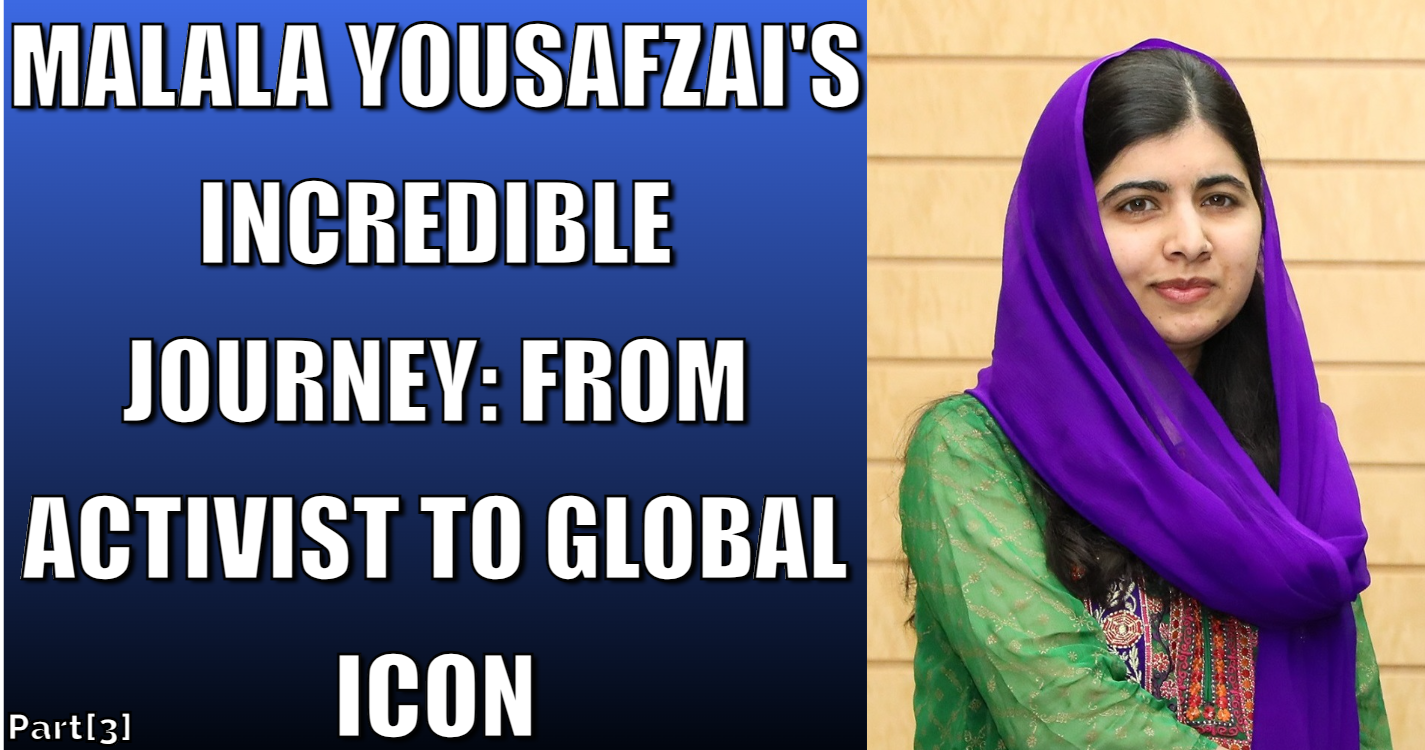Part[3]
David Letterman Interview
In March 2018, Malala Yousafzai was interviewed by David Letterman for his Netflix show, “My Next Guest Needs No Introduction.” During the interview, Yousafzai discussed various topics, including the Taliban’s treatment of women, her views on forgiveness, and her opinions on the presidency of Donald Trump.
Yousafzai explained that the Taliban’s misogyny stems from a superiority complex, which is often justified by misinterpreting cultural or religious texts, including Islam. Reflecting on her own experience, she remarked, “I forgive them because that’s the best revenge I can have.” She highlighted that her attacker was a young boy who believed he was doing the right thing, emphasizing the importance of understanding and education.
When asked about Donald Trump’s presidency, Yousafzai expressed disappointment with several aspects, particularly the issues of sexual harassment, the ban on Muslims, and racism. She also criticized the Trump administration’s proposed budget cuts to education, arguing that education is essential for eradicating extremism and ending poverty.
Throughout the episode, viewers saw clips of Yousafzai guiding prospective students around her college, Lady Margaret Hall, Oxford, showcasing her continued commitment to education and her role as a mentor to young people.
Afghanistan
In July 2021, as the Taliban launched a major offensive, Malala Yousafzai called on the international community to advocate for an immediate ceasefire in Afghanistan and provide humanitarian aid to Afghan civilians. Her appeal came as the Taliban insurgents rapidly gained control across the country.
Following the Taliban’s takeover of Kabul on 15 August 2021, Yousafzai expressed deep concern about the future of women’s rights in Afghanistan. She feared that the progress made in social and educational spheres for women over the previous two decades under the Afghan government would be undone.
Yousafzai strongly condemned the Taliban’s ban on girls’ education beyond the sixth grade, stating, “The Taliban will continue to make excuses to prevent girls from learning beyond primary school.” She highlighted the group’s intention to “erase girls and women from all public life in Afghanistan.” She called on global leaders to take collective action, emphasizing the need to hold the Taliban accountable for violating the human rights of millions of women and girls.
Women’s Clothing and Marriage
Malala Yousafzai once expressed confusion about the necessity of marriage. However, after her marriage in 2021, she clarified that her concerns were not about marriage itself but about the issues surrounding it, such as child marriage, forced marriage, and unequal marriages where “women make more compromises than men.” She emphasized that in her marriage, she had found a partner who shared her values and understood her concerns.
On 7 March 2022, Yousafzai advocated for every woman’s right to choose her clothing, whether it be a burqa or a bikini. She emphasized the importance of individual freedom and autonomy, stating, “Come and talk to us about individual freedom and autonomy, about preventing harm and violence, about education and emancipation. Do not come with your wardrobe notes.” She also criticized policies that refuse to let girls attend school wearing hijabs, calling such actions “horrifying.” Yousafzai’s stance highlights her commitment to personal freedom and education for women.
Personal Life
On 9 November 2021, Malala Yousafzai married Asser Malik, a manager with the Pakistan Cricket Board, in a ceremony held in Birmingham.
Reception
Malala Yousafzai’s opposition to Talibanisation has made her unpopular among Taliban sympathizers in Pakistan. A columnist from Dawn noted she was scapegoated by the “failing state government,” while a journalist from The Nation wrote that Yousafzai was hated by “overzealous patriots” who were keen to deny the oppression of women in Pakistan. Her statements conflicted with the belief that militancy in Pakistan was a result of Western interference, and conservatives and Islamic fundamentalists described her ideology as “anti-Pakistan.”
Many Pakistanis view her as an “agent of the West” due to her Nobel prize, Oxford education, and residence in England. However, she is also seen as courageous by some. Farman Nawaz argued in Daily Outlook Afghanistan that Yousafzai would have gained more fame in Pakistan if she belonged to the province of Punjab.
In 2015, the All Pakistan Private Schools Federation (APPSF) banned her autobiographical book, I Am Malala, in all Pakistani private schools. The APPSF president, Mirza Kashif Ali, released his book against her, I Am Not Malala. His book accused Yousafzai of attacking the Pakistan Armed Forces under the pretense of promoting female education, described her father as a “double agent” and “traitor,” and criticized the Malala Fund’s promotion of secular education. However, Ali pointed out that the APPSF had gone on a national strike when Yousafzai was attacked by the Pakistani Taliban.
Conspiracy theorists in newspapers and social media alleged that Yousafzai had staged her assassination attempt or that she was an agent of the US Central Intelligence Agency (CIA). Another conspiracy theory claimed that Yousafzai was a Jewish agent.
On 29 March 2018, Yousafzai returned to Pakistan for the first time since the shooting. During her visit, she met Prime Minister Shahid Khaqan Abbasi and delivered a speech, stating it had been her dream to return without any fear. She also visited her hometown of Mingora in Swat District, Khyber Pakhtunkhwa. Yousafzai vowed to return to her country after completing her studies and, responding to criticism, said, “I am proud of my religion and country.”

